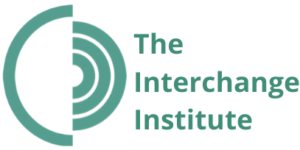Dear All,
A big thank you to Nick Dunn for co-leading the icebreakers and energizers Culture Chat. As always, his energy was infectious and we learned a thing or two. We often use icebreakers and energizers as a way to get to know one another, facilitate discussion, put our audience at ease, and/or to break up the routine of a training. The types of icebreakers vary based on the audience, material covered, and time available. But how do you facilitate participant buy-in? Do you purposively include activities that require participation but less self-revelation, if so, share your icebreakers. Any other thoughts? Comment below.

5 thoughts on “Culture Chat Title: “Elephants, Palm Trees, and Toasters: How Icebreakers Energize and Kickstart Learning””
This was so fun to facilitate! Special thanks to Syed for sharing icebreakers!
Would love to hear from others about icebreaker best practices and go-to activities.
I’ll start:
https://trainings.350.org/?resource=gamesenergizersdynamicas
I’ll dig some out and share!
Here are some classics for online: https://blog.sli.do/virtual-icebreakers/
Nick, I use to do a version of “Something True About Yourself (from Gerald Gomani, Zimbabwe)” for a writing workshop with young adults. They would start writing a story (could provide a prompt or not), begin your snowball fight (or shoot hoops with your crumbled paper) pick up a snowball (or rebound) and read the story you now have and then continue writing that story.
@Tasha, love the snowball fight idea!
At SIIC, we did an envelope passing activity like that. Write your name on an envelope, then pass it. Each time an envelope reaches you, you write a note to that person, then pass. When you get yours, read the feedback, ideas, encouragement, whatever. Could do iterative storytelling in the same way in a formal setting where snowball fights are discouraged!
Interculturalist Circle members, please get in touch if you’d like to co-lead a Culture Chat.
Comments are closed.